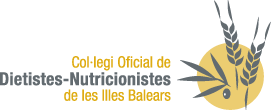Exploring where European dietitians work
A new EFAD survey confirms that almost four out of five European dietitians work in the health sector. While this may not be a surprise to most, the survey did find that geographical differences existed. Central and Northern European dietitians work in the public sector, whereas in southern European dietitians work in the private sector or as freelancers.
The Research and Evidence Based Practice Committee (REBPC) developed the survey towards the end of 2018 as a result of a lack of data on where dietitians worked at national or European levels. The REBPC linked in with National Dietitians’ Associations (NDAs) so they could circulate the online survey among their delegates to capture this data.
The survey launched in August 2019 and closed February 2020. A total of 1,156 dietitians from 25 separate countries participated in the survey. The majority worked either in the public or in the private sector (67%), leaving a relatively small number working exclusively as freelancers (17%). The majority of central and northern European dietitians (i.e. Austria, Denmark, Finland, France, Germany, Hungary, Norway, Sweden, Switzerland and the United Kingdom) reported working in the public sector. The southern European dietitians had a different location for the work - predominantly those in Greece and Italy working in freelancing and those in Spain mixing the freelancing with the private sector. While most dietitians reported working in the health sector (~80%), only about 5% work in the food sector and 7% in other settings like academia, research, schools, sports facilities or pharmaceutical companies.
The REBPC is keen to repeat this survey with a greater number of both participants and NDAs so we can monitor the evolution of the dietitian workplace over time.
We would like to thank all the dietitians who participated and NDAs who supported this work.
The EFAD REBPC
|
 CODNIB
Colegio Oficial de Dietistas-Nutricionistas de Illes Balears
CODNIB
Colegio Oficial de Dietistas-Nutricionistas de Illes Balears

